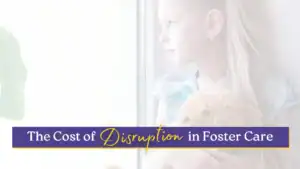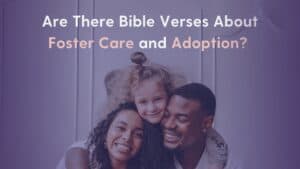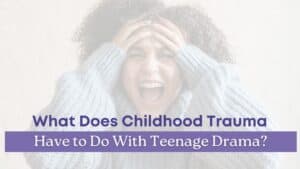At age 11, Sophie is a victim.
The clock is ticking, and her foster care team knows it. If Sophie spends more than five years in foster care, she will no longer be viewed as a victim. At age 16, the community compassion Sophie received at 11 will turn to contempt. If she becomes a teen in foster care, she will be labeled “Damaged.” She will shift from powerless to powerful. She will be seen as dangerous and not safe to be around kids. We forget that inside she is still a kid, with nowhere to go.
What happens when you’ve done nothing to deserve the consequence of losing everything?
Sophie’s Fortress
It is a Wednesday night. The week of Valentine’s Day. Sophie wakes up because she hears ice clinking in a glass.
Although it is dark, she can see a few of her valentines hanging from ribbons in front of her window. At 3 AM, she is alert. She stares through the darkness at the ceiling, concentrating on his shoes moving on the linoleum floor. A squeak and stop. Another squeak and turn.
Squeak, squeak. Her mind traces his steps. As he comes closer to her bedroom, she quietly moves from her bed to her safe spot.
Her “safe spot” is in the corner of her room.
It is a space she has created by opening her closet door to meet the corner of her dresser.
That corner is Sophie’s fortress.
She knows staying awake may be her only defense.
The Next Morning
The next morning, a beam of sunlight brightens her room. Sophie wakes-up, and unravels herself from the tightly rolled ball she fell asleep in. She keeps her eyes closed and tries to remember the night before. Sophie focuses on various parts of her body.
Are they sore? She feels the wetness of her pajamas from an accident she had while sleeping. That’s okay; it’s not the first time. She lets go of her breath, grateful she is safe. No one touched her last night.
Sophie changes her clothes and grabs her backpack.
She tiptoes past the couch where her dad is sleeping. A stench is thick in the air. She walks out the backdoor shaking her arms. She tries to shake off the shame she is certain follows her everywhere she goes.
It smells like smoke and beer and sweat.
Her Teacher Notices
Through the lens of someone driving by, Sophie is simply a frail schoolgirl, 11 years old, and scared. Eyes turned to the ground. A screech from a nearby car sends her body backward. She swipes at unexpected tears. Her anger rises. She’s too exhausted to be sad.

Sophie arrives at school and is met by her teacher.
Her teacher notices Sophie is thin. She is very concerned, having sat with a weepy Sophie on many occasions. Almost every day, Sophie struggles to stay awake at her desk. She sleeps through lunch and rarely plays with the other kids.
Sophie’s teacher has been trained to recognize possible abuse. She is mandated by law to report that suspicion. Today she files a Child Abuse Report to Child Protective Services (CPS).
Within hours, a CPS Specialist is standing across from Sophie. By the afternoon, Sophie is sitting next to a Social Worker. It is the first time she hears: she may never go home.
At age 11, Sophie is a victim.
Kids Go Into Foster Care
When kids go into the foster care system, it is usually swift, like a lightning strike that changes everything. They lose their home. They lose their pets, their school, their teachers, and their friends. We teach our kids not to talk to strangers: not to go with strangers. Then to protect them, we remove them from their homes and send them to live with strangers. It is no surprise adults are not to be trusted. It is also why kids in foster care may not show a lot of gratitude, as many inexperienced foster parents are disappointed to find out.
The most common reasons kids go into foster care are physical abuse, neglect, parental drug abuse, and/or incarceration.

These details, along with a child’s age, are likely to determine whether a family will say yes when the phone rings and they are told about a child who needs a home. Will they open their doors? Eleven years old and abused? Yes. Sixteen years old with a parent in prison?
Hearing Their Voices
In 2019, over 672,000 children spent time in U.S. foster care. How do we ensure that two or three or five years in foster care will not devour their hope of being part of a family? As kids in foster care become teens, their hearts carry more grief and pain. They not only find their voices; they use them.
But we don’t want to hear how painful it is or how hard it’s been. We don’t want to be exposed to the symptoms of a broken childhood. We fear it is contagious.
But what if it’s not?
What if we look past the sins of the fathers and instead remember each of us is made in the image of Christ.? What if we focus less on what might happen if we say yes, and pay more attention to what will happen if we say no?
- Annually, 20,000 youth “age out” of America’s foster care system with no place to call home.
- Within four years of aging out, 50% of foster youth will have no earnings, and those who do have jobs will average an annual income of $7,500.
- More dire than their job prospects, 50% to 80% of sex trafficking victims in the United States were or are in the child welfare system.
- The average age of a girl being sex trafficked? 12.
- The average age of a girl who graduates to prostitution? 14.
If a kid falls in a pool, we jump in to save him.
If a kid runs into a street, we rush to stop her.
Someone is hurting these kids. Why are we not clamoring to help them?
God Calls Us
The Lord did not design us to be alone. The Lord did not design them to be alone either.
And the longer they are left alone they will learn being alone is the only way to be safe. If we don’t claim them. If we don’t welcome them into our families. The enemy will welcome them into his.
In Mark 10: 13-16, we are reminded of every child’s worthiness. “And they were bringing children to him that he might touch them, and the disciples rebuked them. But when Jesus saw it, he was indignant and said to them, ‘Let the children come to me; do not hinder them, for to such belongs the kingdom of God. Truly, I say to you, whoever does not receive the kingdom of God like a child shall not enter it.’ And he took them in his arms and blessed them, laying his hands on them.”
Is it possible, like the disciples, we are not allowing kids in foster care to draw near to the Jesus that dwells in each of us who love him?
By not opening our arms, are we unintentionally rebuking them?
The Lord Calls to Them
Kids in the foster care system have rough edges.
They use words we don’t expect.
They reveal secrets that can change us forever. Still, the Lord calls them to Himself. All of them.
The Lord calls to them from our hearts.
Our lives are evidence of a Gracious and Creative God. Our lives are woven each day with new threads telling His story as it unfolds. Some of the threads are wearing down and some of them are fraying. Some of them are cut shorter than we wanted. Still, He makes us beautiful.
Kids in foster care are holding on by a thread.
It might be fraying. It might be wearing down. But it is beautiful. Open your heart. Invite them over your threshold.
In or out of the womb, you never know what the Lord will knit together if you let Him.
















